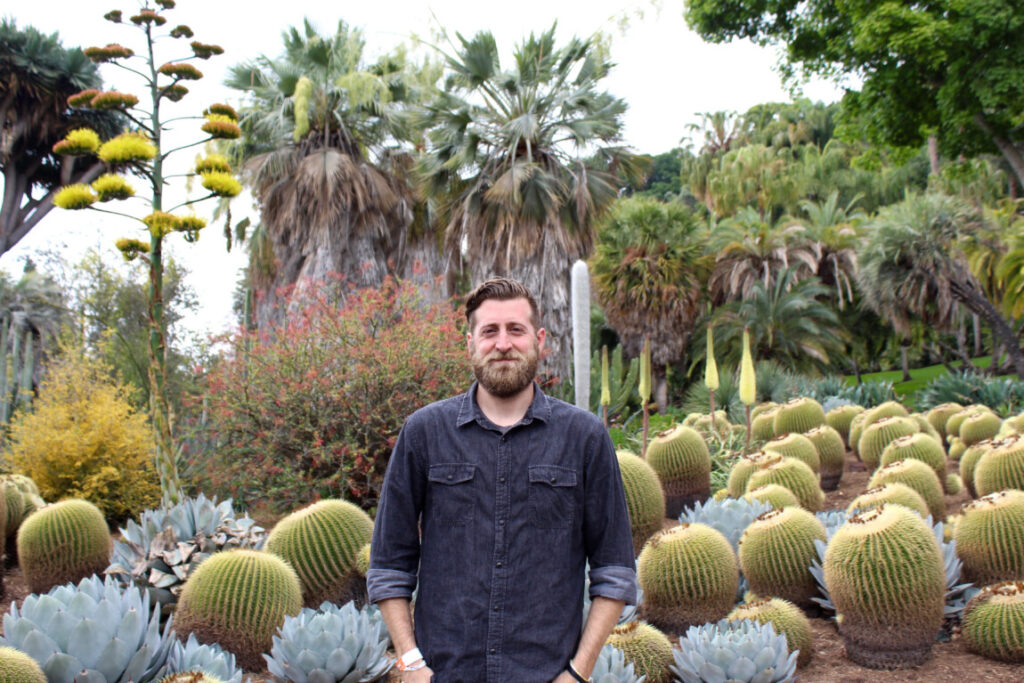Meet Matt Garite, Assistant Teaching Professor of Literature

Matt Garite is an Assistant Teaching Professor of English, specializing in the study of 20th and 21st century American literature, with an emphasis on the literature of the 1960s and 1970s counterculture. Dr. Garite grew up on the south shore of Long Island reading comic books and attending all-ages punk shows. The latter awakened in him a lasting interest in the intersections of culture and politics. Travelling north after high school, he pursued his undergraduate and master’s degrees in English at Syracuse University, and (because he wasn’t yet sick of the snow) his PhD from the University at Buffalo. His dissertation, Green Futures: A Cultural History of Ecotopia from the Cold War to the Present, examines the impact of the modern environmental movement on popular conceptions of the future. Prior to his arrival at WFU, Dr. Garite taught at Drake University and High Point University. His research interests include cultural studies, critical theory, and Marxism, and his publications address literature, film, music, art, and videogames. Apart from his work as an academic, Dr. Garite also served for several years as the associate editor for Plot, an online journal dedicated to critical examination of contemporary visual culture. His current book project examines “consciousness-raising” as a key metaphor and organizing principle for all of the major fronts of the cultural revolution of the 1960s and 1970s. Chapters of the book focus on figures like Aldous Huxley and the members of the “Eupsychian Network”: writers and intellectuals crucial to the launch of America’s psychedelic counterculture.
Since his arrival in 2018, Dr. Garite has offered Core Literature courses like “Hippie Modernism” and “Inner Spaces and Altered States: Literature and Consciousness.” He’s also teaching an American literature survey course this semester on the theme of rebellion. In many ways, his pedagogical philosophy draws upon the countercultural texts and historical moments he studies, with goals like consciousness-raising, language experimentation, and anti-authoritarian or utopian questioning animating the structure of his courses. When he’s not teaching, Dr. Garite enjoys journaling, meditating, collecting books and records, swimming in the ocean, walking with his infant daughter, practicing the art of psychogeography—and, of course, reading widely.
Categories: Department Profiles, Faculty News
